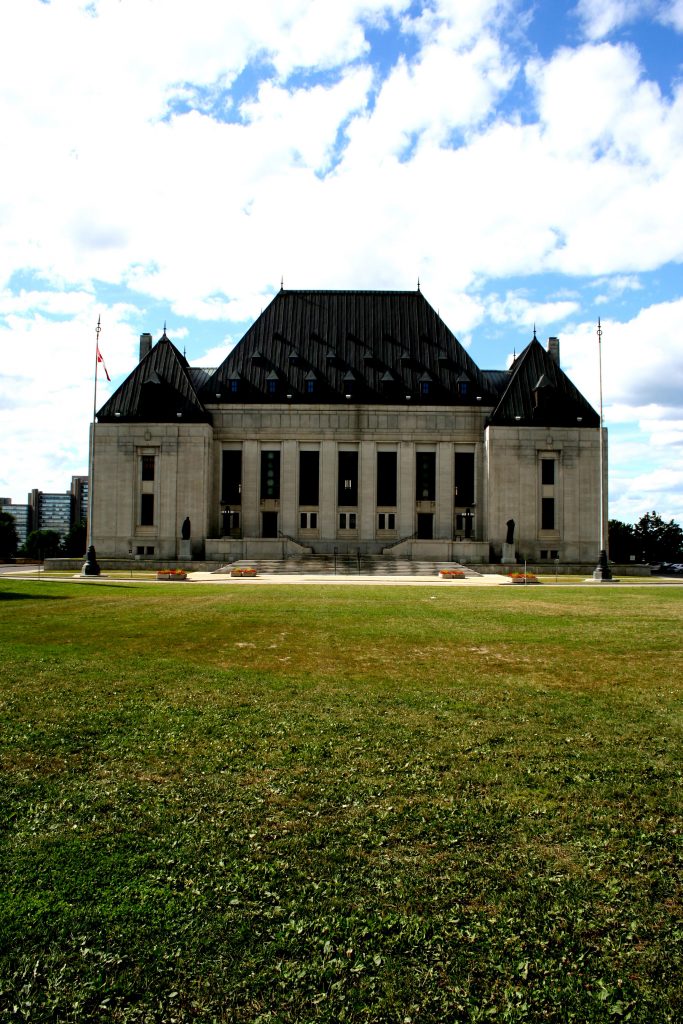 Workers’ compensation disputes often boil down to the terms of a written contract where each party asserts their own interpretation of the agreement and lets the court decide. The case below is no different as it pertains to a “third-party beneficiary,” which essentially is a party not expressly contained in the agreement, but is no less a party to the contract.
Workers’ compensation disputes often boil down to the terms of a written contract where each party asserts their own interpretation of the agreement and lets the court decide. The case below is no different as it pertains to a “third-party beneficiary,” which essentially is a party not expressly contained in the agreement, but is no less a party to the contract.
Mr. Scarberry was an employee of the Oklahoma Gas and Electric Company (OGE) and was helping Entergy Gulf States Louisiana, LLC (Entergy) restore power to residences and business in the midwest after hurricane Gustav caused damage to the area.
OGE and Entergy were members of a larger nonprofit trade association, Southeastern Electrical Exchange (SEE), and the relationship between members of SEE was governed by an Agreement, which is the backdrop of the dispute here between Mr. Scarberry, OGE, and Entergy.
 Louisiana Personal Injury Lawyer Blog
Louisiana Personal Injury Lawyer Blog


 When you are in a motor vehicle accident, there are many issues that can arise as to the issue of fault and whose version of events is more reliable. Conflicting versions of what happened can make it difficult for the court to assign fault. It is thus important to always be aware of your surroundings and the laws of driving a motor vehicle, as illustrated in the following case.
When you are in a motor vehicle accident, there are many issues that can arise as to the issue of fault and whose version of events is more reliable. Conflicting versions of what happened can make it difficult for the court to assign fault. It is thus important to always be aware of your surroundings and the laws of driving a motor vehicle, as illustrated in the following case.  In November 2008, in Claiborne Parish, Mr. Fields went to Willis Knighton Claiborne Regional Health Center for complaints of diarrhea. Mr. Fields also had an extended history of medical issues, including hypertension and a kidney transplant. He saw a nurse practitioner, who consulted with a doctor and gave him a prescription for a generic antibacterial, which he took as directed. About a week later, he called his doctor’s office complaining that the medicine was making him feel worse. He alleged that he was instructed to continue taking the medicine as originally directed.
In November 2008, in Claiborne Parish, Mr. Fields went to Willis Knighton Claiborne Regional Health Center for complaints of diarrhea. Mr. Fields also had an extended history of medical issues, including hypertension and a kidney transplant. He saw a nurse practitioner, who consulted with a doctor and gave him a prescription for a generic antibacterial, which he took as directed. About a week later, he called his doctor’s office complaining that the medicine was making him feel worse. He alleged that he was instructed to continue taking the medicine as originally directed. Kenneth White’s road trip from Monroe to Shreveport, Louisiana wasn’t exactly uneventful. The Monroe man was involved in a traffic accident that led to a legal battle between insurance companies. White’s insurance dispute led to a significant change in the law, as the Court of Appeal held that a major auto carrier’s contract provision violated public policy.
Kenneth White’s road trip from Monroe to Shreveport, Louisiana wasn’t exactly uneventful. The Monroe man was involved in a traffic accident that led to a legal battle between insurance companies. White’s insurance dispute led to a significant change in the law, as the Court of Appeal held that a major auto carrier’s contract provision violated public policy. If you are injured at work, it is imperative that you follow the appropriate procedures under workers’ compensation law to ensure that you are fully and fairly compensated for your injuries. A failure to properly report or address your injuries can result in a lesser payment or no payment at all. It is also important to keep your place of employment apprised of your injuries and treatment, and written records of your contact, so that if it becomes necessary to bring an action against your employer you have sufficient evidence to support your position. A recent case of the Louisiana Third Circuit Court of Appeal is illustrative.
If you are injured at work, it is imperative that you follow the appropriate procedures under workers’ compensation law to ensure that you are fully and fairly compensated for your injuries. A failure to properly report or address your injuries can result in a lesser payment or no payment at all. It is also important to keep your place of employment apprised of your injuries and treatment, and written records of your contact, so that if it becomes necessary to bring an action against your employer you have sufficient evidence to support your position. A recent case of the Louisiana Third Circuit Court of Appeal is illustrative. In Louisiana, when an employee suffers an on-the-job injury, the employer may be held liable. This can easily end the initial romantic period of the employment, now that the employee’s interests are at odds with the employer’s. The employer considers that it now has to take care of a non-productive employee, hurting the business’s bottom line. On the other hand, the employee argues that she should be compensated for her work-related injuries considering all the labor she put into the company, contributing to its profits. The law takes into account and draws a delicate balance between these varying interests. It goes without saying that it is important for both employees and employers to be aware of their rights under workers’ compensation law. Illustrating this point, the Louisiana Third Circuit Court of Appeal was recently called upon to decide whether a potentially expensive surgical procedure made necessary by a work-related injury should or should not be granted.
In Louisiana, when an employee suffers an on-the-job injury, the employer may be held liable. This can easily end the initial romantic period of the employment, now that the employee’s interests are at odds with the employer’s. The employer considers that it now has to take care of a non-productive employee, hurting the business’s bottom line. On the other hand, the employee argues that she should be compensated for her work-related injuries considering all the labor she put into the company, contributing to its profits. The law takes into account and draws a delicate balance between these varying interests. It goes without saying that it is important for both employees and employers to be aware of their rights under workers’ compensation law. Illustrating this point, the Louisiana Third Circuit Court of Appeal was recently called upon to decide whether a potentially expensive surgical procedure made necessary by a work-related injury should or should not be granted. When an accident occurs, it’s often difficult to determine what actually happened until the aftermath, but in the justice system, piecing a puzzle together and drawing conclusions based on little remaining evidence rarely constitutes enough of a basis to file a lawsuit. As the court said in the case of Benjamin Tomaso when he attempted to file a lawsuit against Home Depot, “[s]peculation as to what caused an accident cannot supply the factual support necessary to show that a plaintiff would be able to meet his evidentiary burden of proof at trial.”
When an accident occurs, it’s often difficult to determine what actually happened until the aftermath, but in the justice system, piecing a puzzle together and drawing conclusions based on little remaining evidence rarely constitutes enough of a basis to file a lawsuit. As the court said in the case of Benjamin Tomaso when he attempted to file a lawsuit against Home Depot, “[s]peculation as to what caused an accident cannot supply the factual support necessary to show that a plaintiff would be able to meet his evidentiary burden of proof at trial.”  Do you know your constitutional rights? In 2014 one-third of Americans were unaware of their First Amendment rights according to a Newseum Institute survey. This is an alarming truth that we, as citizens, must face. Here are some questions I pose to you: Do you know your Fourth Amendment rights? Can a law enforcement officer arrest someone without probable cause? What is probable cause? What is qualified immunity? A recent
Do you know your constitutional rights? In 2014 one-third of Americans were unaware of their First Amendment rights according to a Newseum Institute survey. This is an alarming truth that we, as citizens, must face. Here are some questions I pose to you: Do you know your Fourth Amendment rights? Can a law enforcement officer arrest someone without probable cause? What is probable cause? What is qualified immunity? A recent When asserting a claim under constitutional law, the moving party must meet a specific standard that is easily navigated by an attorney. As one Louisiana man recently learned, without the help of a lawyer, navigating these pleading standards can be difficult and detrimental to the outcome of your case.
When asserting a claim under constitutional law, the moving party must meet a specific standard that is easily navigated by an attorney. As one Louisiana man recently learned, without the help of a lawyer, navigating these pleading standards can be difficult and detrimental to the outcome of your case. In a lawsuit, a client’s claims need to be monitored every step of the way. If an issue is revived in an appeal, an attorney must keep track of it and reinforce it at each new representation. If an attorney doesn’t continue to assert a claim, a court might think the party abandoned the issue and the court will not review it on appeal. Keeping these claims alive is not a major undertaking, but as Glenn E. Alphonse, Jr. learned in his recent case, even the slightest misstep in this area can make or break an outcome.
In a lawsuit, a client’s claims need to be monitored every step of the way. If an issue is revived in an appeal, an attorney must keep track of it and reinforce it at each new representation. If an attorney doesn’t continue to assert a claim, a court might think the party abandoned the issue and the court will not review it on appeal. Keeping these claims alive is not a major undertaking, but as Glenn E. Alphonse, Jr. learned in his recent case, even the slightest misstep in this area can make or break an outcome.